| Teacher: Rusty Kennedy Series: Acts |
Rusty's Notes | |
- We left off with Paul before King Agrippa, but he had already appealed to Caesar in order to save his life.
- Map from Jerusalem to Caesarea
- Slides of Herod’s Palace
ACTS 27 - 60 AD
1 When it was decided that we were to sail to Italy,
- Luke had not included himself since Acts 21:18
- Paul was facing his Jewish counterparts in Jerusalem
- Luke was Paul’s personal physician
- Unlike “other prisoners”, Paul was not being sent to Rome to die but to go to trial.
- Imagine Paul sharing Jesus with these prisoners before they were to die.
- Julius abandoned the slower coastal ship and put Paul and the others on board this large grain ship from Egypt that carried 276 passengers (Acts 27:37–38).
- Rome depended on Egypt for much of its grain supply, and the Roman government gave special consideration to those who ran these ships.[1]
- Map from Caesarea to Fair Havens
PAUL’S ADVICE IGNORED
9 By now much time had passed, and the voyage was already dangerous. Since the Day of Atonement, was already over, Paul gave his advice 10 and told them, “Men, I can see that this voyage is headed toward disaster and heavy loss, not only of the cargo and the ship but also of our lives.”
- The Day of Atonement, which fell in September/October; and every sailor knew that sailing was difficult from mid-September to mid-November, and impossible from mid-November to February.[2]
- God had given wisdom and direction to Paul.
- 2 Corinthians 11:25 – Paul had already experienced 3 shipwrecks.
- But he was viewed as a back-seat driver.
- So naturally they chose to go against God’s will.
- What were the factors that governed Julius’ decision?
- To begin with, Fair Havens was not a comfortable place to settle down because it was too open to the winter storms.
- Phoenix had a more sheltered harbor.
- Julius also listened to the “expert advice” of the pilot and captain (“master and owner”) of the ship.
- They advised that the ship head for Phoenix as fast as possible.
- Surely they could cover forty miles safely, and already they had lost too much time.
- When Julius added up the votes, it was three to one that the ship set sail.
- After all, the majority cannot be wrong, especially when it includes the experts![3]
STORM-TOSSED SHIP
13 When a gentle south wind sprang up, they thought they had achieved their purpose.
- Julius and the captain probably smiled at Paul.
- The actual Greek word translates to “typhoon”.
- Drifted, because they couldn’t steer, 23 miles to the south.
- Map of Fair Havens to Malta
- Literally, wrapped the ship in chains and ropes to keep it from falling apart.
- Body of water that was full of sand bars.
- They would typically sail based upon the sun, moon and stars.
- They had no direction.
21 Since they had been without food for a long time, Paul then stood up among them and said, “You men should have followed my advice not to sail from Crete and sustain this damage and loss. 22 Now I urge you to take courage, because there will be no loss of any of your lives, but only of the ship. 23 For last night an angel of the God I belong to and serve stood by me 24 and said, ‘Don’t be afraid, Paul. It is necessary for you to appear before Caesar. And indeed, God has graciously given you all those who are sailing with you.’ 25 So take courage, men, because I believe God that it will be just the way it was told to me. 26 But we have to run aground on some island.”
- A crisis does not make a person.
- A crisis shows what a person is made of, and it tends to bring true leadership to the fore.
- Paul gently rebuked the centurion, pilot, and captain for ignoring his warning.
- Soon they would discover that God had spared all of them only because of Paul.[4]
- V. 22-26 – Paul shared God’s Word with them
- During the two weeks they had been at sea, the ship had been driven over 500 miles off course and was now adrift in the Adrian Sea.
- (It is now called the Ionian Sea and must not be confused with the Adriatic Sea.) As[5]
- V. 27-32 – Paul warned them
- V33-38 – Paul set a good example for them.
- Caring for one’s health is an important part of the Christian life, and even an apostle must not abuse his body.
- There are times when one dedicated believer can change the whole atmosphere of a situation simply by trusting God and making that faith visible.[6]
SHIPWRECK
39 When daylight came, they did not recognize the land but sighted a bay with a beach. They planned to run the ship ashore if they could. 40 After cutting loose the anchors, they left them in the sea, at the same time loosening the ropes that held the rudders. Then they hoisted the foresail to the wind and headed for the beach. 41 But they struck a sandbar and ran the ship aground. The bow jammed fast and remained immovable, while the stern began to break up by the pounding of the waves.
42 The soldiers’ plan was to kill the prisoners so that no one could swim away and escape. 43 But the centurion kept them from carrying out their plan because he wanted to save Paul, and so he ordered those who could swim to jump overboard first and get to land. 44 The rest were to follow, some on planks and some on debris from the ship. In this way, everyone safely reached the shore. [7]
- V. 39-44 – Paul rescued them
- First of all, storms often come when we disobey the will of God. (Jonah is a good example of this truth.)
- However, it was not Paul who was at fault, but the centurion in charge of the ship.
- We sometimes suffer because of the unbelief of others.
- Second, storms have a way of revealing character.
- Some of the sailors selfishly tried to escape, others could only hope for the best; but Paul trusted God and obeyed His will.
- Third, even the worst storms cannot hide the face of God or hinder the purposes of God.
- Paul received the word of assurance that they needed, and God overruled so that His servant arrived safely in Rome.
- Finally, storms can give us opportunities to serve others and bear witness to Jesus Christ.
- Paul was the most valuable man on that ship!
[1] Wiersbe, W. W. (1996). The Bible exposition commentary (Vol. 1, p. 508). Victor Books.
[2] Wiersbe, W. W. (1996). The Bible exposition commentary (Vol. 1, p. 508). Victor Books.
[3] Wiersbe, W. W. (1996). The Bible exposition commentary (Vol. 1, p. 508). Victor Books.
[4] Wiersbe, W. W. (1996). The Bible exposition commentary (Vol. 1, p. 509). Victor Books.
[5] Wiersbe, W. W. (1996). The Bible exposition commentary (Vol. 1, p. 509). Victor Books.
[6] Wiersbe, W. W. (1996). The Bible exposition commentary (Vol. 1, p. 509). Victor Books.
[7] Christian Standard Bible (Ac 27:1–44). (2020). Holman Bible Publishers.
[8] Wiersbe, W. W. (1996). The Bible exposition commentary (Vol. 1, p. 510). Victor Books.

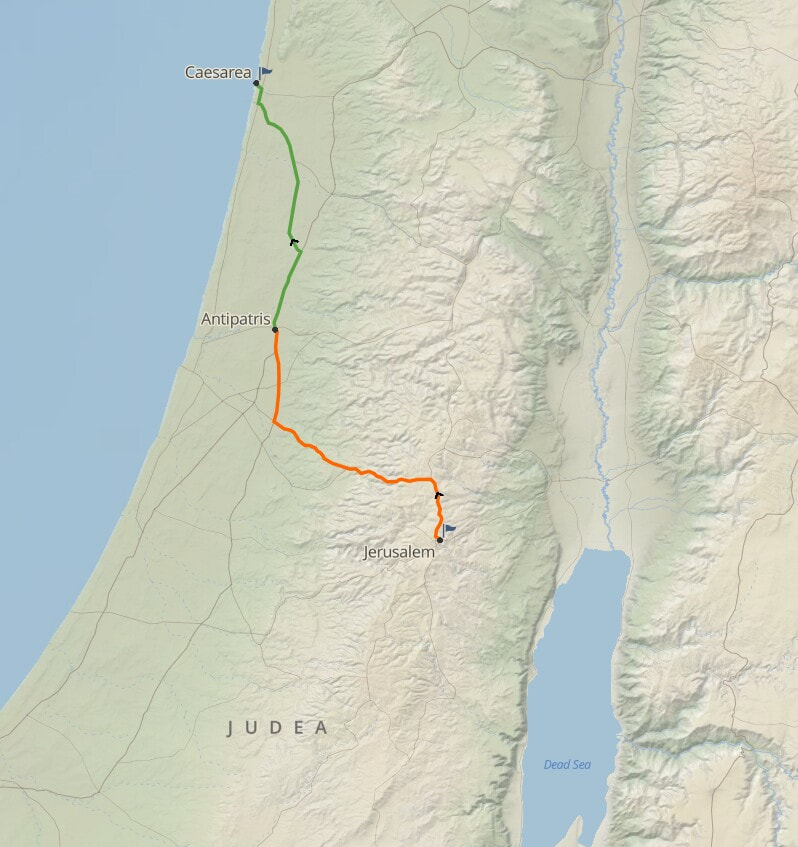
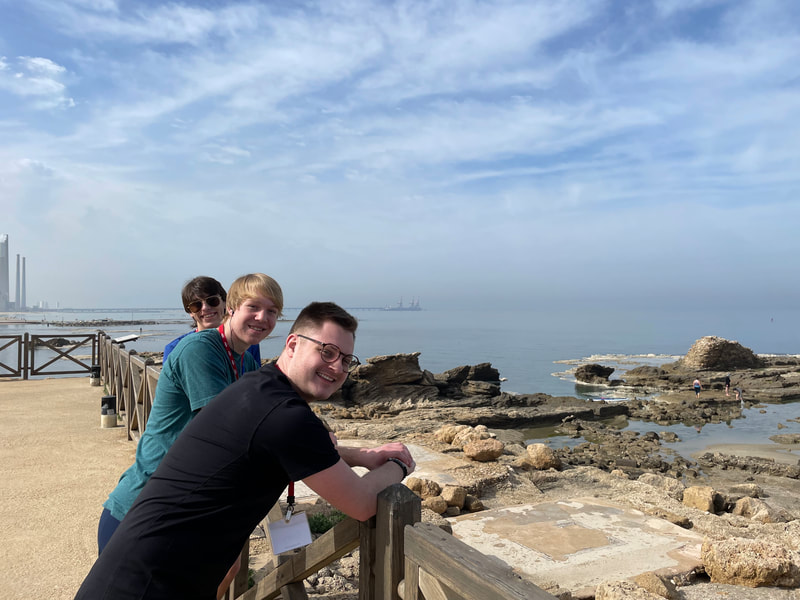

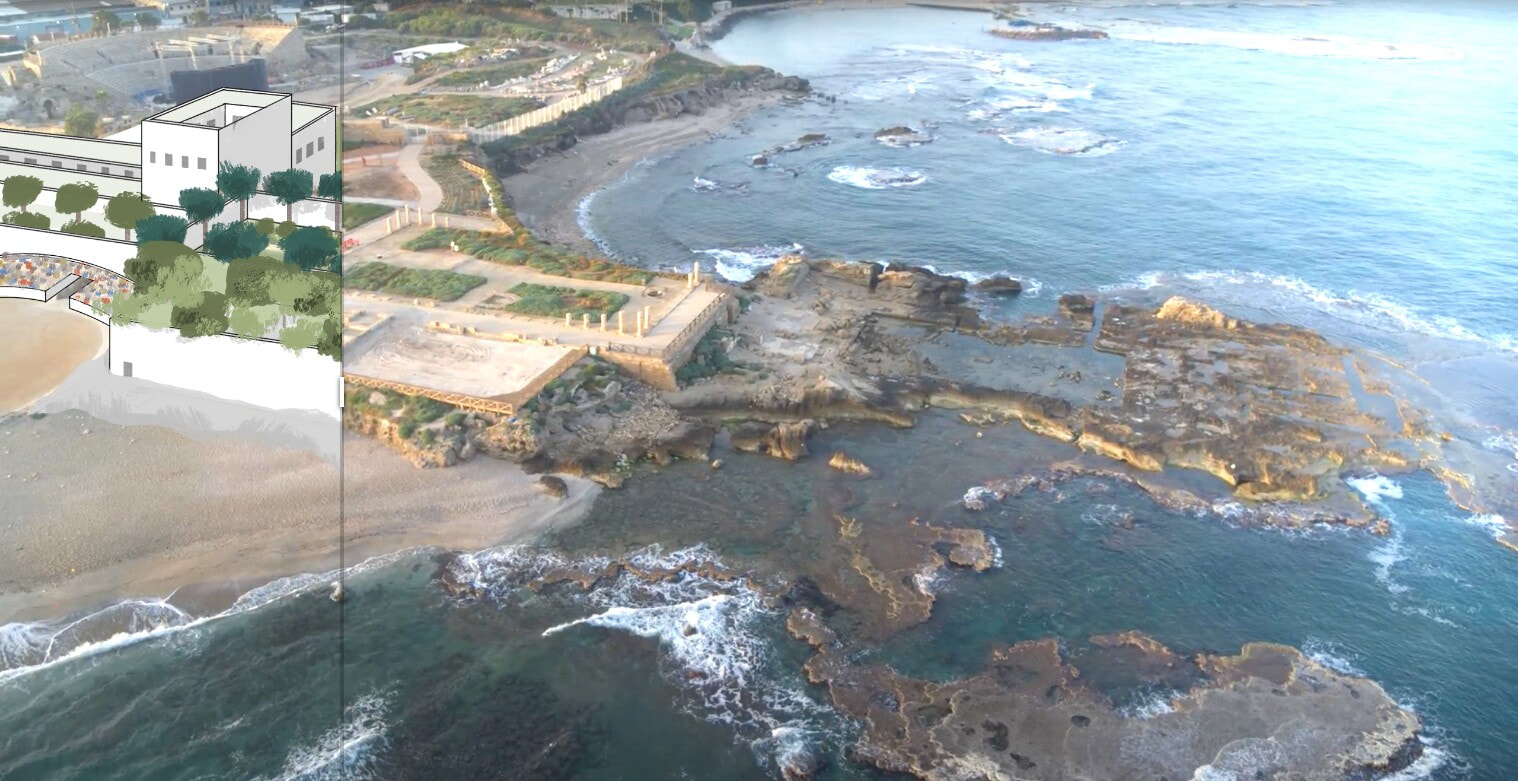
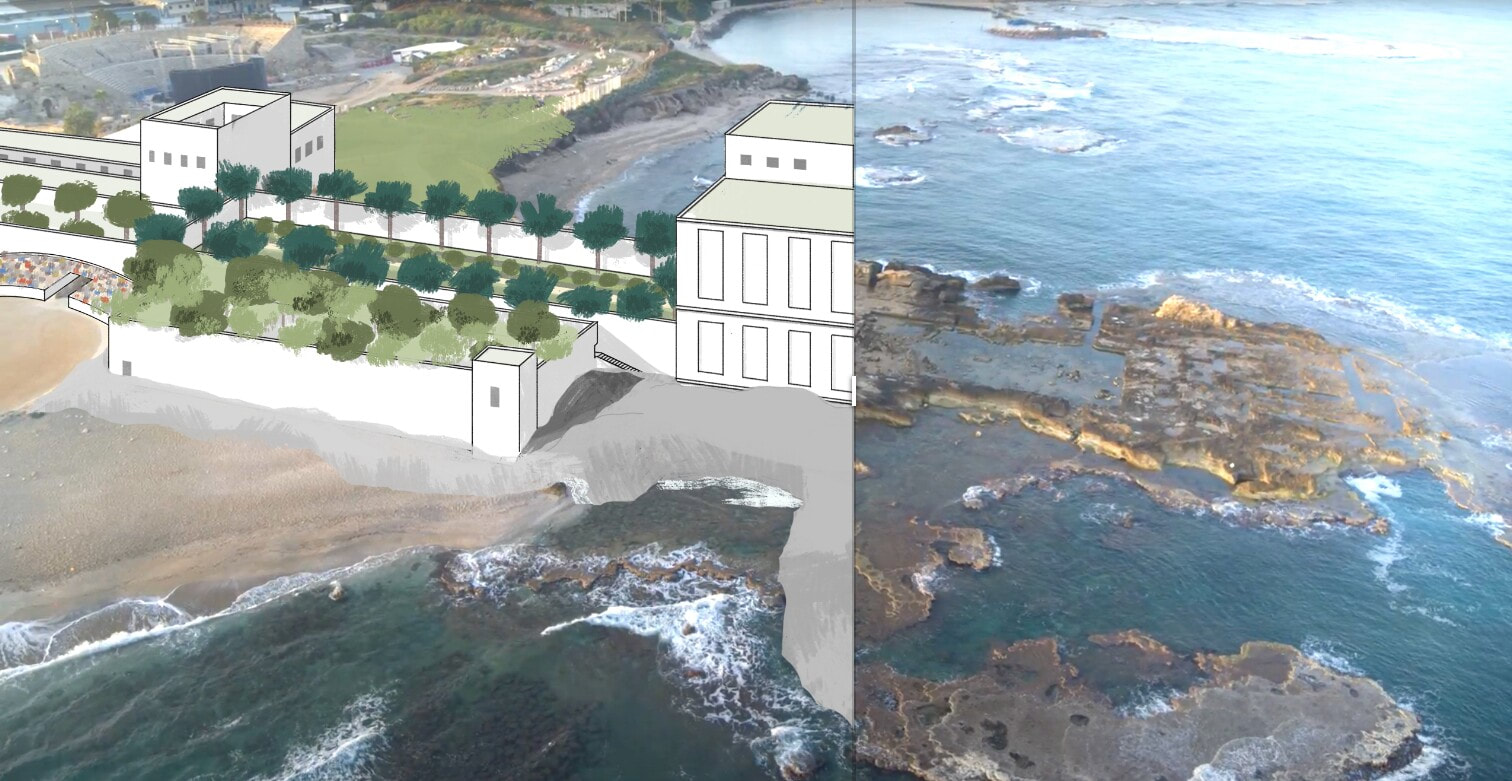

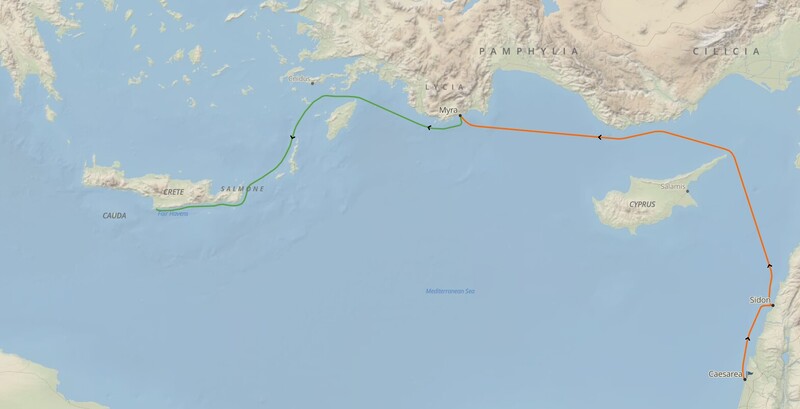
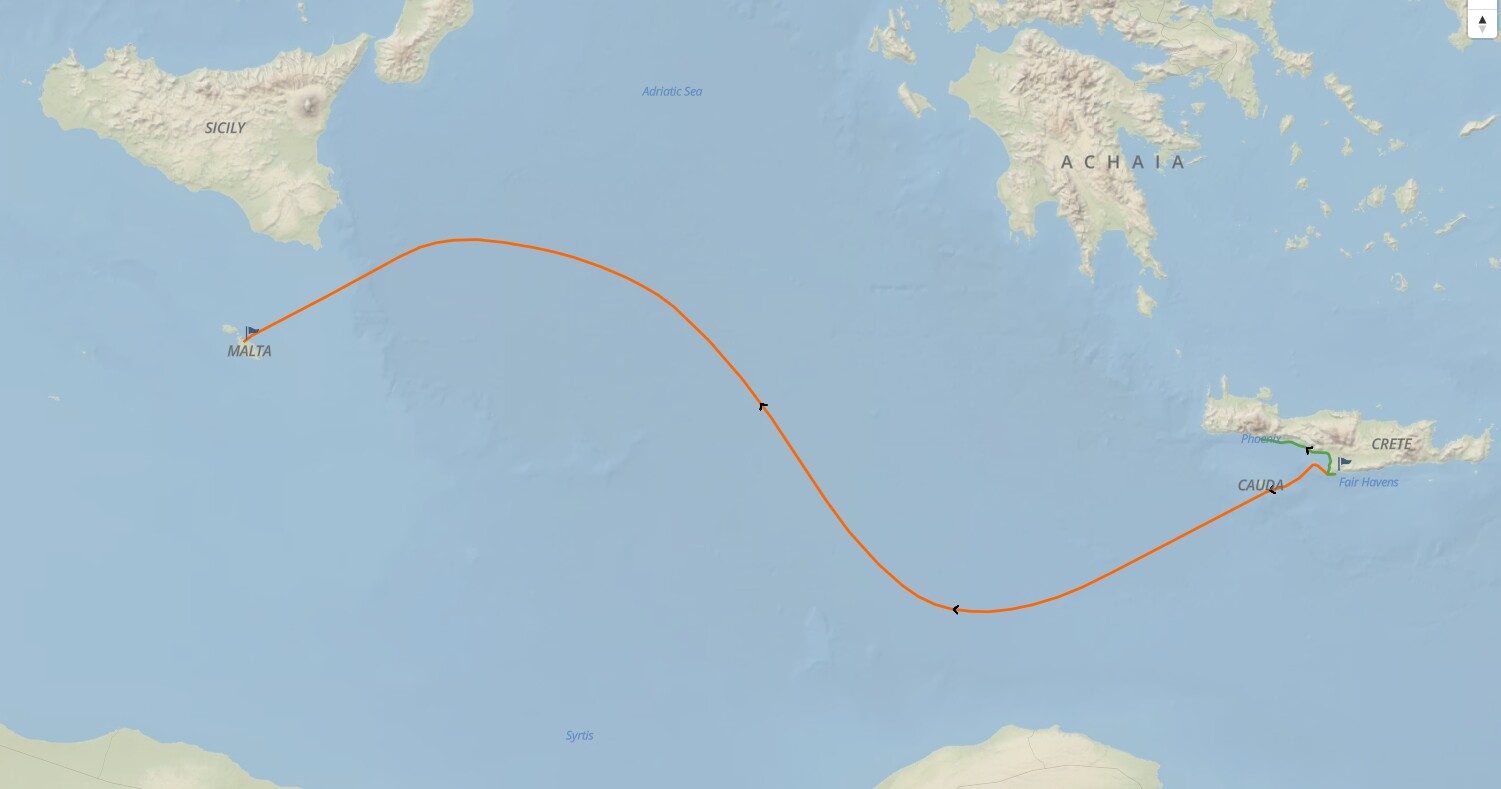
 RSS Feed
RSS Feed